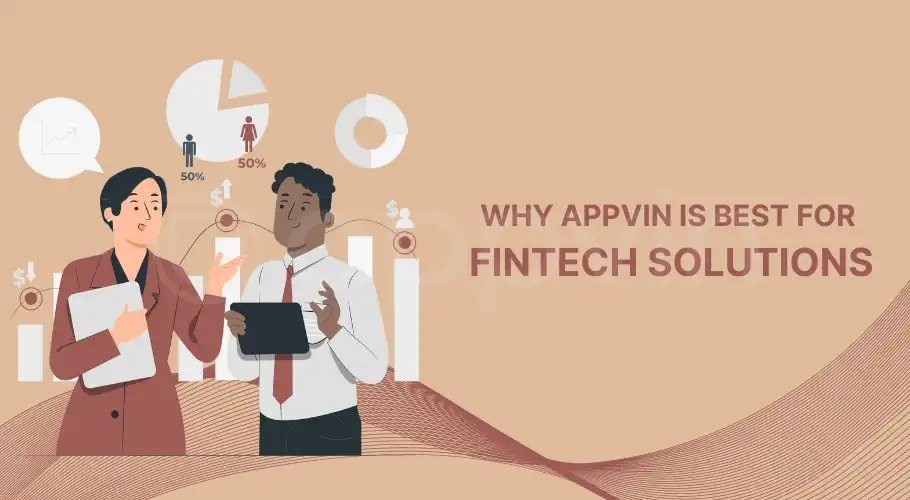FinTech has revolutionized the financial landscape, offering innovative solutions through technology. FinTech Software Development comes with its challenges.
This guide will explore the critical challenges developers face in this dynamic field and how they can navigate them. Developers should stay updated on the latest FinTech trends and be flexible in responding to industry changes. They must also be able to develop solutions that are secure and compliant with regulations. Finally, developers should be comfortable working with complex data to ensure efficient and accurate results.

Here are the following challenges in Fintech Software Development:
Regulatory compliance:
One of the foremost challenges in FinTech Software Development services is ensuring compliance with stringent regulatory standards. Financial authorities impose strict regulations to safeguard users and maintain the financial system’s integrity. Developers must stay abreast of these regulations and incorporate compliance measures into their software. Developers should perform regular audits and testing to guarantee software compliance. They must also ensure the software is regularly updated to keep up with regulation changes.
Finally, they should also guide users and help them understand regulations.
Security:
Security is paramount in FinTech due to the sensitive nature of financial data. Developers must implement robust security features, encryption protocols, and authentication mechanisms to safeguard against cyber threats.
Additionally, data privacy is crucial to building user trust and complying with privacy regulations. FinTech Application Development Company must also proactively implement measures to detect and respond to security threats. This includes implementing automated systems to detect suspicious activity and deploying security teams to monitor and address threats.
Lastly, it’s crucial to routinely review and update security protocols to remain current with the latest threats.
Integration with Legacy Systems:
Many financial institutions rely on legacy systems that cannot integrate with modern technology. Developers face the challenge of seamlessly integrating the latest FinTech Software Development solutions with existing infrastructure. This requires careful planning, API development, and, sometimes, a gradual transition approach. This approach allows financial institutions to stay competitive and use the latest technologies. It also helps reduce the risk of disruption, as the transition process can be carefully managed.
Finally, it allows financial institutions to maintain legacy systems while adapting to the new digital landscape.
Scalability:
The scalability of FinTech Applications Development is vital to accommodate the growing number of users and transactions. Developers must design software architectures that scale horizontally and vertically, ensuring optimal performance even during peak usage periods. This can be achieved by leveraging cloud computing and microservices. Developers must also consider latency, availability, and resilience factors when building their architectures.
Finally, they must constantly monitor their applications to ensure they are running optimally.
User Experience (UX):
Creating a seamless and user-friendly experience is crucial in FinTech Custom Software Development. Developers need to strike a balance between usability, security, and compliance. Investing in intuitive design, responsive interfaces, and user education can enhance the overall user experience. Additionally, providing users with convenient access to the necessary features, tools, and resources is essential. Customer support and assistance can help users feel more comfortable navigating the platform.
Data Management and Analytics:
Handling and analyzing vast amounts of financial data is challenging. Developers must implement effective data management strategies, utilize advanced analytics tools, and ensure compliance with data protection regulations to derive meaningful insights from financial data. Additionally, developers must provide the economic data is accurate and up-to-date to ensure meaningful analysis and decision-making. Regularly reviewing and auditing the data is essential to maintain accuracy.
Finally, developers must ensure the security of the financial data to protect against unauthorized access.
Fraud Prevention:
FinTech Applications Development are prime targets for fraudsters. Developers need sophisticated fraud detection and prevention mechanisms to protect users and financial transactions. This involves leveraging machine learning algorithms, pattern recognition, and real-time monitoring to identify and mitigate fraudulent activities. Companies must also consider the security of their infrastructure to prevent data breaches and malicious attacks. Regular security audits and rigorous testing must be conducted to ensure the protection of the application.
Finally, companies should invest in user education to help users understand how to detect and prevent fraud.
Technology Stack Selection:
Choosing the right technology stack is critical to Custom FinTech software development. Developers must stay informed about the latest advancements and select technologies that align with project requirements. This includes databases, programming languages, frameworks, and other tools contributing to the application’s efficiency and security.
Cross-border regulations:
For FinTech products operating in multiple jurisdictions, navigating diverse regulatory frameworks becomes challenging. Developers must deeply understand international regulations, compliance standards, and legal requirements to ensure seamless operation across borders. FinTech Software Development Companies must also be able to respond quickly to changing regulations and requirements. This includes having the resources and expertise to quickly adapt to new requirements and the ability to secure the necessary permits and licenses.
Additionally, FinTech companies must know the potential risks of operating in different jurisdictions.
Continuous innovation:
FinTech software Development is dynamic and constantly evolving. Developers must foster a culture of innovation, staying updated with industry trends, emerging technologies, and customer expectations. Regular updates, feature enhancements, and adapting to market changes are essential to remain competitive. Developers should also build secure applications that protect customer data and privacy. They should strive to create a user experience that is intuitive and user-friendly.
Finally, developers should create applications that scale quickly and can handle large volumes of users.
Conclusion:
In the dynamic FinTech landscape, overcoming challenges demands strategic planning and technical understanding. AppVin Technologies, a leading Fintech Software Development Company, excels in navigating complexities with a commitment to compliance, robust security, and continuous innovation. Their expertise positions them as a trusted partner, ensuring clients meet regulatory standards and embrace future-ready solutions. AppVin Technologies is at the forefront, shaping the FinTech industry with resilience, excellence, and user-centric focus.

Why AppVin is Best for Fintech Solutions
AppVin is the premier choice for FinTech solutions due to its unmatched expertise, unwavering commitment to regulatory compliance, and relentless focus on innovation. With a proven track record, AppVin Technologies excels in developing robust, secure, and scalable FinTech applications. Their dedication to user-centric design ensures a seamless and intuitive experience. In contrast, a forward-thinking approach ensures clients receive solutions that meet current needs and anticipate future industry trends. Choose AppVin for FinTech excellence that transcends expectations.
FAQs
Q. What are the most significant security concerns in FinTech software development?
A: FinTech software deals with susceptible financial data, making it a prime target for cyberattacks. Common security concerns include:
- Data breaches: Hackers can exploit vulnerabilities to steal user information like account details and financial data.
- Malware and phishing attacks: Malicious software and deceptive emails can trick users into revealing sensitive information or clicking on harmful links.
- Unauthorized access: Weak access controls or insider threats can allow unauthorized individuals to access sensitive data.
Q. How can FinTech companies comply with data privacy regulations like GDPR and CCPA?
A: Compliance with data privacy regulations like GDPR (General Data Protection Regulation) and CCPA (California Consumer Privacy Act) is crucial for FinTech companies. This involves:
- Implementing robust data security measures to protect user data.
- Obtaining explicit and informed consent from users regarding data collection and usage.
- Providing users with access and control over their personal information.
- Establishing apparent data retention and disposal policies.
Q. What are the best practices for integrating blockchain technology into FinTech software?
A: Integrating blockchain technology into FinTech software offers benefits like enhanced security and transparency. However, challenges exist:
- Choosing the right blockchain platform: Different platforms cater to specific needs, and choosing the right one can help with scalability and performance.
- Integration complexity: Integrating blockchain with existing systems can be technically challenging, requiring expertise and careful planning.
- Regulatory uncertainty: The regulatory landscape surrounding blockchain is still evolving, creating uncertainty for businesses.
Q. How can FinTech developers build scalable and secure solutions for the cloud?
A: Building scalable and secure cloud-based FinTech solutions requires several strategies:
- We utilize cloud-native architecture, Leveraging cloud services like microservices and serverless functions to ensure scalability and flexibility.
- We are implementing robust security measures, Employing strong encryption, access controls, and continuous monitoring to safeguard data and applications.
- Choosing reliable cloud providers: Selecting reputable providers with a proven security and compliance track record.
Q. How can AI and machine learning be used to improve the user experience in FinTech applications?
A: AI and machine learning offer opportunities to enhance the user experience in FinTech applications through:
- Personalized recommendations: Recommending relevant financial products and services based on user data and preferences.
- Fraud detection and prevention: Utilizing AI algorithms to identify and prevent fraudulent activities.
- Chatbots and virtual assistants: Providing 24/7 customer support and personalized assistance through chatbots and virtual assistants.

